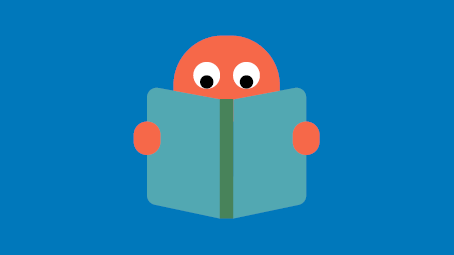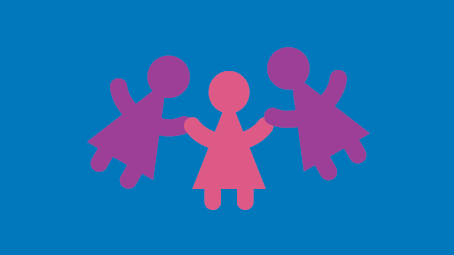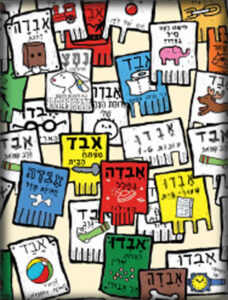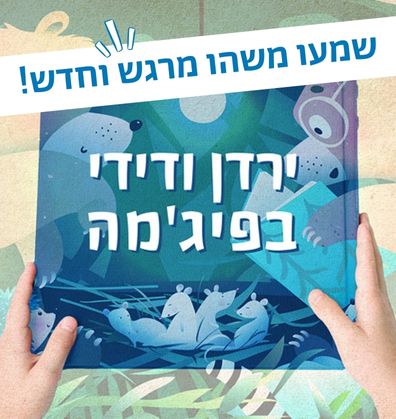אֲנִי וְעַצְמִי
געגוע
מה עושים כשמתגעגעים מאד? אפשר להתגעגע לאדם אהוב, לחפץ, למקום או לחוויה נעימה. געגוע הוא רגש של כמיהה למשהו שהיה לנו ואינו עוד. לעיתים הוא מתבטא ברגשות עצבות, בתחושת ריקנות או באבדן, ולעיתים הוא נוסטלגי ומרגיש נעים ונכון. סיפורים שעוסקים בגעגוע חושפים את ביטויו השונים ומאפשרים לקוראים להזדהות עם דמויות שמתמודדות עם תחושות דומות, לשתף בתחושותיהם ולחשוב על דרכי התמודדות שונות.
סְּפָרִים
Book-Related Family Activities
A discussion on yearning
How does yearning feel? Have you ever missed someone? Who? – This book is an opportunity for a discussion during which you, parents, can share your own experiences of missing someone and waiting for their return.
What does it mean to miss someone?
Pupik misses his father, and Ohad knows exactly how he feels. They share their feelings, and think of things they could do while missing someone. You may want to scan this QR code to watch them, and get some good advice for times when you miss others.
Arts & crafts – A yearning box
Does it feel like time is standing still while you are missing someone who is away? – You may want to make a box filled with items that could make time go by faster, and make you forget about that person’s absence for a while. How about putting some photos of the two of you in it, materials with which to make a gift or a drawing for them, which you could give to them upon their return?
A game for passing the time
A minute can go by very quickly, or it can almost stand still. Would you like to try? – Set your timer for one minute, choose an activity, and do it for a full minute: Hopping on one leg, sitting still, finding items beginning with the letter G – Which activity helped time pass by faster? And which activity made it go by extra slowly?
A discussion on what has been lost
Have you ever lost anything you found important? How did you feel and what did you do? Perhaps you’ve found someone else’s lost item… This book invites children as well as parents to share their childhood experiences of losing and finding lost items.
A video about a lost and found stand
A video about a lost and found stand
Shabi and Uzza from the Israeli children’s television show Parpar Nechmad are also returning lost items to their owners. Scan the code to watch the video.
Observing – Discovering the positive
Shraga is fed up, and so he runs away elsewhere. But is that the only option available to him? If you’re feeling fed up, you can always look around you, and discover the positive aspects in our lives. Perhaps you can list all the good things that happened each day. How about making a family scrapbook of positive things, such as “my friend made me laugh”, “I got the book I wanted”, or “I’m healthy”. You could share the best moments of your day with one another, and check to see whether focusing on the positive and recording your best moments in the scrapbook will improve your mood in the following days as well.
Playing – The 'I'm Bored' die
“I’m bored!!!” – how often have you said or heard these two words? To shake things up a little, and spice things up, take a large die, or make one out of a cardboard box. Write some routine breakers on each side, such as “putting up a tent in the living room”, “ball games” or “singing and dancing”. Each time one of you gets bored, throw the die, and get inspired to do something fun. We recommend writing some new ideas on your die from time to time, so you won’t get fed up of them…
Acting the story out – What is the alien saying?
Throughout the book, the alien speaks a language that readers cannot understand. Can you tell what the alien is saying? What did it say when it was left out in the snow after Shraga had gone? What did it say upon Shraga’s return? And how did Shraga respond? You could act out the alien’s text, give it a special voice, and tell everyone what it does when it’s fed up…
Proposed Family Activities:
- You may want to suggest that your child leaf through the book. What is Oren holding upon returning from his walk with his father? Which toys did the children bring the turtle? You could also look for Oren in the illustrations throughout the book. In which of them does he seem happy, and in which does he look sad? Can you explain why?
- Perhaps you would enjoy taking a short walk near your home. You could take turns looking up, down, to your right, and to your left, and announcing what you see. For instance: “I see an ant!”, or “I see a pinecone!”. Do you notice the same things?
- Does your child know what every animal likes to eat? And where it lives? You may want to discuss the right way to treat animals with your child. Together, you can think which animals can be suitable pets, and how to care for them. Even small children can take part in caring for a household pet.
- You may want to make a turtle shell using a pinecone, a disposable plate, or a finished toilet paper roll. Attach four legs and a head made of cardboard to it, paint it, and have fun owning a pet turtle! You can also use it to act this story out.
- At the end of the book, Oren wishes for his mother to find the turtle again. Together, you could write a sequel to this story. What do you think happened? Where did the turtle go? Did Oren run into it again while taking a walk in the woods? Do you think the turtle remembered him? Did they become friends?
Mira Meir 1932–2016
Mira Meir was born in Lodz, Poland, and relocated to Tel Aviv at the age of 5 along with her family. After completing her military service, she moved to Kibbutz Nahshon. Meir was an author and poet who wrote for both adults and children, and engaged in editing and translating as well. She won many awards for her literary work, including the Zeev Prize for Lifelong Achievement, the Minister of Culture Award, and the Hebrew Authors’ Prize. Among her well-loved children’s prose and poetry books are: Shluly [Puddley]; Maʹaseh She-Haya Kah Haya [Once Upon a Time]; and Paʹam Haya Yeled Shelo Ratzah Lishon Levado [The Boy Who Wouldn’t Sleep Alone].
Ora Ayal 1946–2011
Ora Ayal wrote and illustrated more than 70 children’s books. She illustrated many books written by top Israeli children’s authors, such as Miriam Roth (Tale of Five Balloons [Maʹase Ba-Chamisha Balonim], Hot Corn [Tiras Ham], and Yael’s House [HaBayit Shel Yael]), David Grossman (the book series on Itamar), and Ronit Haham (Five Witches Went for a Walk [Hamesh Mekhashefot Halkhu Letayel]). Among the books Ora Ayal both wrote and illustrated are: One Tuesday Morning [Boker Bahir Ehad]; Ugbu; and The Great War [HaMilhama HaAdira]. Her well-loved books have been a source of delight for Israeli children, and she has won many awards, among them the Andersen Children’s Literature Award, and the Ben-Yitzhak Award.
Activities You Can Do at Home
- Amy and Louis became friends because they were neighbors who enjoyed the same things, so when Amy moves far away, she’s faced with a big challenge. Talk with your children about how you manage to keep in touch with faraway friends and family. After you finish reading this story, your children might get in touch with people they miss: they could write or draw a letter to send them, or talk to them via phone or the Internet.
- Amy and Louie don’t merely miss each other; they recall the things they used to do together. You might talk with your children about things we can do to help keep memories alive. If you have photos, letters, or other items that remind you of friends and shared experiences from your past, you could share them with your children.
- Children are introduced to this book near the end of their kindergarten year. You could talk with your children about good-byes, transitions, and new beginnings. Maybe talk about the friends they’ve made in kindergarten and the things your children like to do with them. Your children could also draw pictures or write letters to give to a friend, teacher, or other staff member at the kindergarten, as a memento.
- Have you ever traveled to a foreign country, “half a world away?” Do you, like Amy and Louis, have friends who live in a faraway land? Using a globe or an atlas, you could show your children the countries you’ve visited or the places where your friends and family live. You could also explain time differences, intercontinental travel, and much more. “Amy and Louis” is the final book in PJ Library’s list for the year. We hope you have enjoyed these books and send you our best wishes for a successful summer and transition to kindergarten and beyond. Please keep in touch!

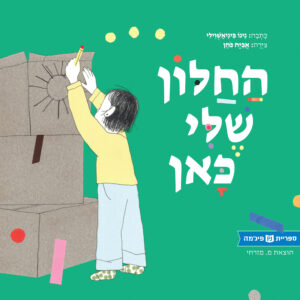 My Window is Here
My Window is Here 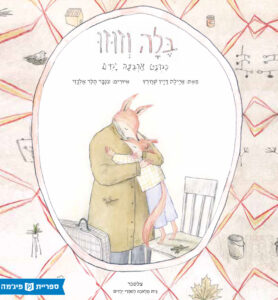 Bella and Zouzou
Bella and Zouzou 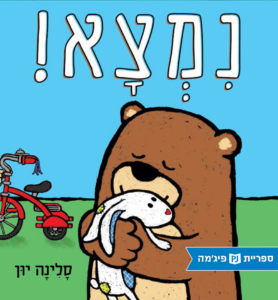 Found
Found 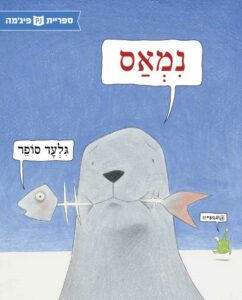 Fed Up
Fed Up 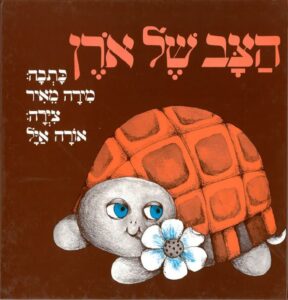 Oren’s Turtle
Oren’s Turtle  Amy and Louis Hebrew title: “Half A World Away”
Amy and Louis Hebrew title: “Half A World Away” 